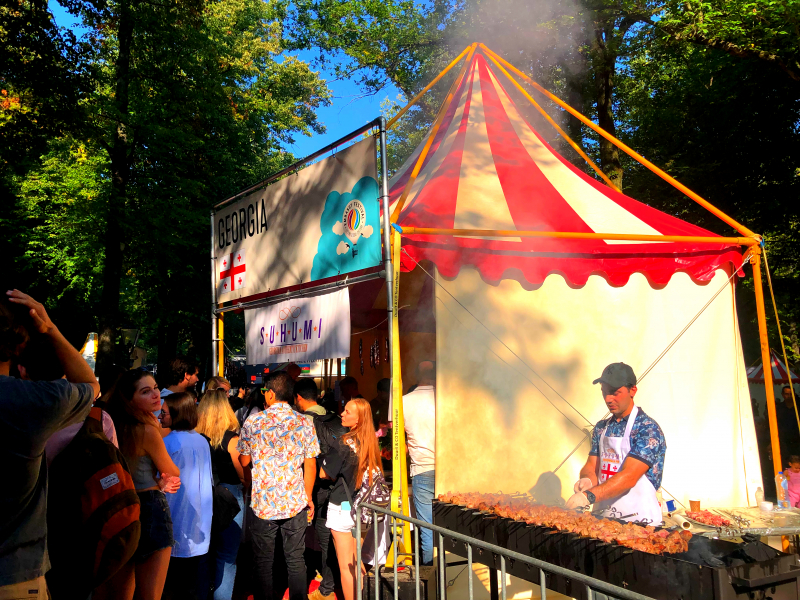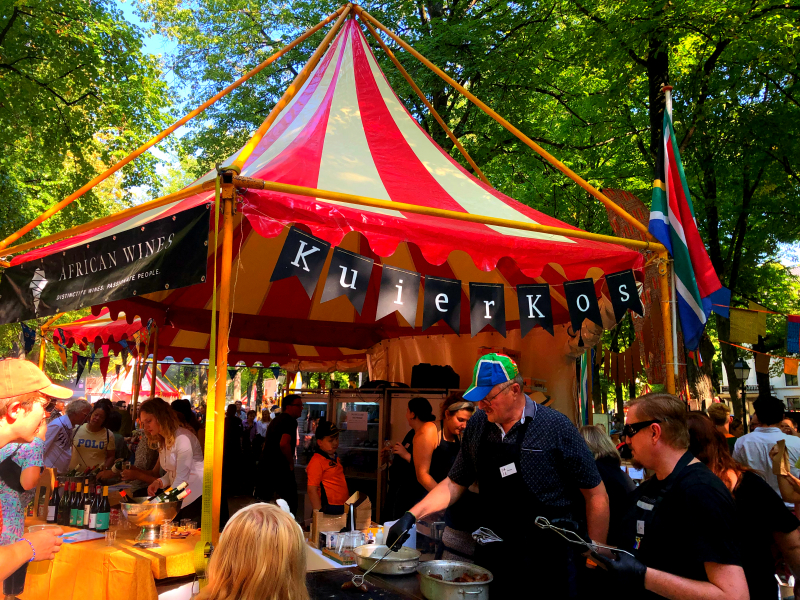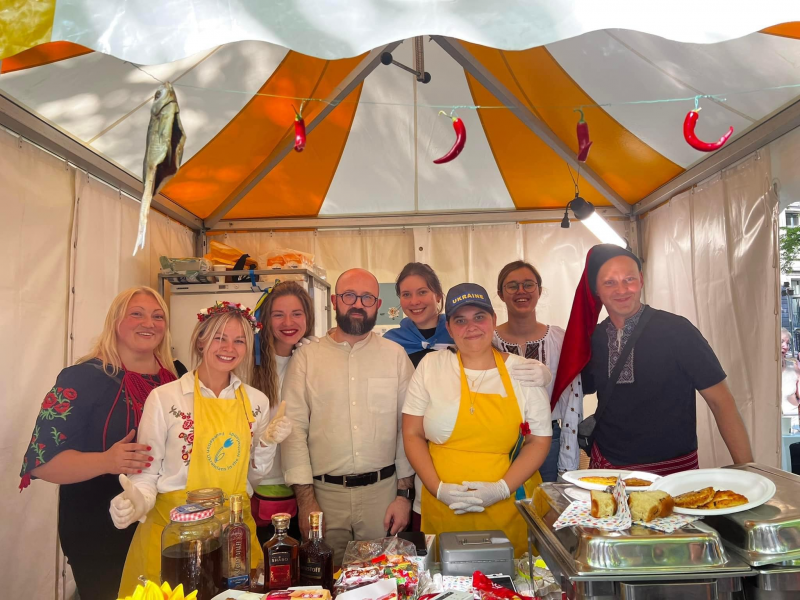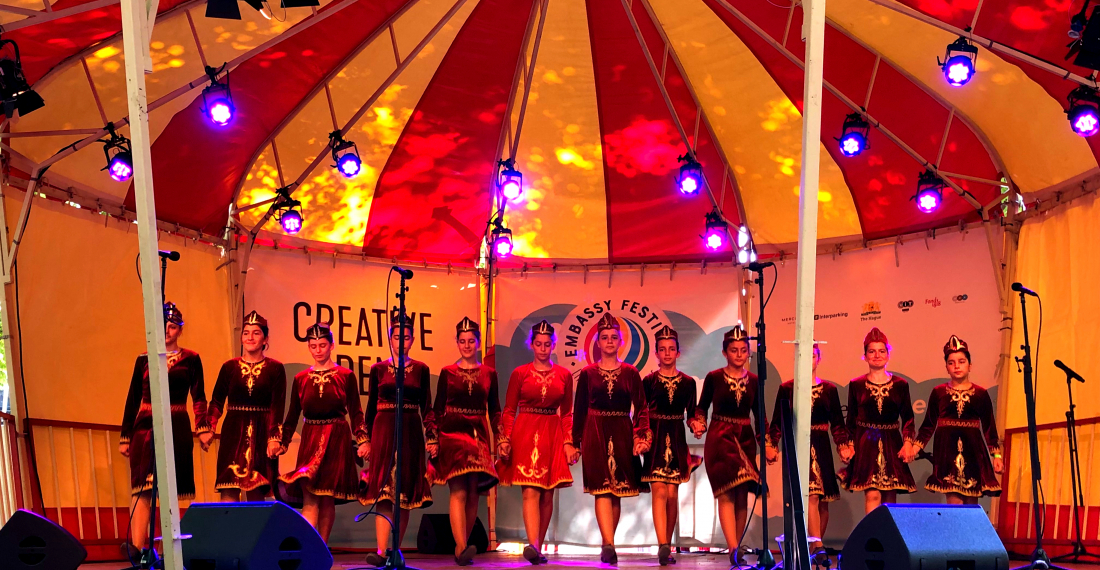On Saturday 3rd September 2022, embassies from 55 countries came together in the centre of The Hague, the Netherlands, in a boisterous and technicolour celebration of world culture. Among the countries present at the festival this year were Georgia, Armenia, Azerbaijan, Kazakhstan, Morocco, Algeria, Oman and Yemen.
Starting out as the European LIFE I LIVE festival - founded in 2012 to support The Hague’s bid to be the European Capital of Culture, in which only European embassies took part - the decision was taken in 2019 to invite the whole world to open their doors to their national cultures. Having hosted only 5 embassies in its first year, the number had rocketed to 67 by 2019, becoming a truly international festival of culture at the heart of the self-styled City of Peace and Justice.
Curving around the tree-lined avenue of the Lange Voorhout, a famous street in The Hague with many embassies and just a few minutes’ walk from the seat of the Dutch Parliament, countries drew people in with colourful tents boasting a vast array of national food, drink, clothes, brochures, freebies, and other memorabilia.
The Georgian food stall - run by The Hague’s Georgian restaurant - was exceedingly popular, with a line of hungry khachapuri lovers stretching back around 50 metres. The Armenians and Azerbaijanis both put on a national barbecue over glowing hot coals, filling the air with an aromatic smoke of meat and spices. Meanwhile, the Embassy of Kazakhstan assembled a mock-up yurt filled with national dress, musical instruments, cuisine, and arts and crafts, and also raised money for those affected by recent huge wildfires in the country’s northern Kostanay region. Pakistan also used the opportunity to raise funds for victims of catastrophic floods across the whole country, one of the worst natural disasters in the country’s history.

Curiously, the titans of western Europe were conspicuously absent. There was no UK, no France, no Spain, no Italy, or no Germany. In any case, this provided the smaller European embassies the opportunity to flaunt their countries without being overshadowed, and the hidden gems of Europe had a chance to make their mark on passers-by. Slovenia and Croatia brought boxes of their own unique wines and piles of glossy tourist leaflets, while Bosnia & Herzegovina brought their own national cuisine to The Hague’s international scene.
Far from only marketing their countries to potential visitors and increasing awareness of their respective tourist industries, the Embassy Festival plays another important role for local diasporas. By going to the effort of setting up a tent and bringing a little bit of their homeland to The Hague, it shows often disconnected diasporas that their diplomatic representatives are present, listening, and engaging. Within seconds of walking up to the South African tent to survey the selection of wine, biltong, and droëwors, you were suddenly surrounded by Afrikaans. Indeed, given the historic links between the Netherlands and South Africa, it is not surprising that the Netherlands has a predominantly white South African community of around 30,000 people. Similarly, the most popular visitors of the Vietnamese and Indonesian tents were seemingly Vietnamese and Indonesian people living in the Netherlands, keen to get a little taste of home on the other side of the world.

Ever since the full-scale Russian invasion of Ukraine on 24th February 2022, tens of thousands of Ukrainians have come to the Netherlands seeking refuge, and Ukrainian stall’s queue, full of flags, vinoks, and vyshyvankas, reflected this. This pop-up piece of Ukraine run by the diaspora group “Ukrainians in the Netherlands” sold hundreds of plates of borscht, doughnuts, and potato pancakes, as well as other Ukrainian products such as horlivka. Even when the very future of the country and its people are under threat, Ukraine found the time and energy to open up to the people of The Hague. If anything, it was a display of defiance and hope, showing that the country and its culture will not be cowed by fear and violence.

The Embassy Festival did not just stop at stalls, however. Throughout the afternoon, various countries performed cultural acts on any one of the three stages dotted around the Lange Voorhout. The South Caucasus also put in a very strong showing, with groups from Georgia, Armenia, and Azerbaijan all drawing crowds. The Georgian choir Megobrebi (meaning “Friends”) opened the proceedings with a glorious performance of polyphonic singing, and the Armenian Cultural Association Abovian in The Hague brought their talented Youth Choir and Dance Ensemble to the stage. Later in the afternoon, Azerbaijan also performed a selection of national dances complete with fire and flags. Other acts included Irish dancing from the Kilkenny School of Irish Dance in The Hague, South Korean street theatre, the understated yet humorous Latvian choir Ziemeljura, and Nepalese pop music from the band Changa.
Mark Twain said that “travel is fatal to bigotry, prejudice, and narrow-mindedness”, and initiatives such as the Embassy Festival, by giving people the opportunity to travel to all four corners of the world in only one afternoon, by providing a brief but brilliant snapshot of the diversity of Planet Earth, in much the same spirit break down barriers and build up friendships. As the international City of Peace and Justice, there is no better place than The Hague to host an event that demonstrates that, no matter who you are or where you come from, you have both the right and the opportunity to explore and enjoy the cornucopia of world culture that exists all around us.
The Embassy Festival returns to The Hague in September 2023.
source: Patrick Norén, Deputy Editor of commonspace.eu, visited the Embassy Festival on 3rd September 2022.
photos: Embassy of Ukraine in the Netherlands, and Patrick Norén.







